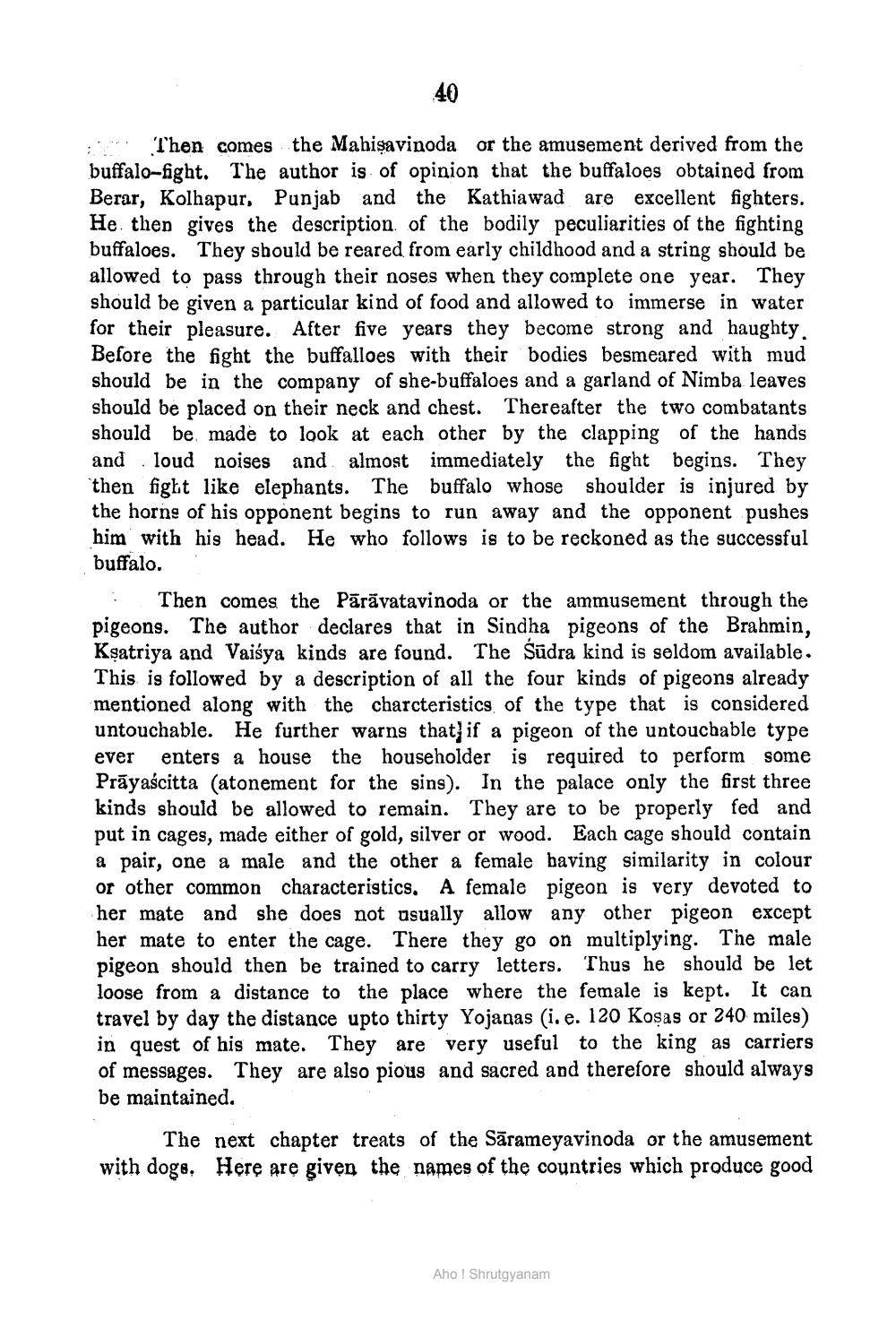________________
40
: : Then comes the Mabişavinoda or the amusement derived from the buffalo-fight. The author is of opinion that the buffaloes obtained from Berar, Kolhapur, Punjab and the Kathiawad are excellent fighters. He then gives the description of the bodily peculiarities of the fighting buffaloes. They should be reared from early child allowed to pass through their noses when they complete one year. They should be given a particular kind of food and allowed to immerse in water for their pleasure. After five years they become strong and haughty Before the fight the buffalloes with their bodies besmeared with mud should be in the company of she-buffaloes and a garland of Nimba leaves should be placed on their neck and chest. Thereafter the two combatants should be made to look at each other by the clapping of the hands and loud noises and almost immediately the fight begins. They then fight like elephants. The buffalo whose shoulder is injured by the horns of his opponent begins to run away and the opponent pushes him with his head. He who follows is to be reckoned as the successful buffalo.
Then comes the Pārāvatavinoda or the ammusement through the pigeons. The author declares that in Sindha pigeons of the Brahmin, Ksatriya and Vaiśya kinds are found. The Sūdra kind is seldom available. This is followed by a description of all the four kinds of pigeons already mentioned along with the charcteristics of the type that is considered untouchable. He further warns that if a pigeon of the untouchable type ever enters a house the householder is required to perform some Prāyaścitta (atonement for the sins). In the palace only the first three
should be allowed to remain. They are to be properly fed and put in cages, made either of gold, silver or wood. Each cage should contain a pair, one a male and the other a female having similarity in colour or other common characteristics. A female pigeon is very devoted to her mate and she does not usually allow any other pigeon except her mate to enter the cage. There they go on multiplying. The male pigeon should then be trained to carry letters. Thus he should be let loose from a distance to the place where the female is kept. It can travel by day the distance upto thirty Yojanas i.e. 120 Kosas or 240 miles) in quest of his mate. They are very useful to the king as carriers of messages. They are also pious and sacred and therefore should always be maintained.
The next chapter treats of the Sārameyavinoda or the amusement with doge. Here are given the names of the countries which produce good
Aho ! Shrutgyanam




